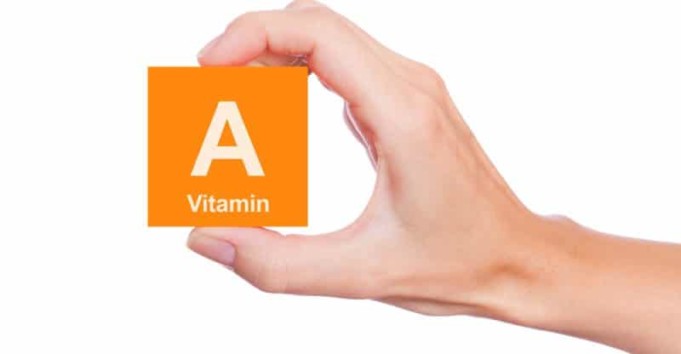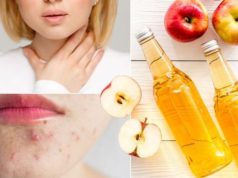Vitamins are essential for the health of your skin. To maintain the best appearance and function for your skin, you need to consume nutrient-dense foods, use products containing vitamins, and also take vitamin supplements.
Asides helping your skin look young and healthy, vitamins can help tackle a number of skin conditions such as eczema, acne, the effects of photoaging, and psoriasis.
This article is going to expose you to the different types or forms of vitamin A and how they can work to improve your skin health.
What is vitamin A?
vitamin A an essential nutrient that supports eye, skin, immune function, and reproductive Heath. There are two distinct types of vitamin A: carotenoid which is the preformed vitamin A, and retinoids which is the preformed vitamin A. The line converts both types of vitamin A to retinol.
When it gets to the liver or is either transported by the lymphatic system to cells throughout the body or stored. Because the skin is a retinoid-responsive organ, it is able to absorb vitamin A quickly when it is applied topically.
Retinol is vital because it helps to stimulate the production of new skin cells and also prevent skin dryness. A study has shown that a deficit of retinol can lead to follicular hyperkeratosis which a condition caused by an excess of keratin in hair follicles. When a person has hyperkeratosis, it creates the appearance of raised papules on the skin.
The use of topical retinoids is recommended by the American Academy of Dermatology for the treatment of acne in both adults and teens. According to reports from studies in the American Academy of Dermatology, retinol is useful for stimulating the production of collagen and reduce wrinkling when it is applied topically.
Also, carotenoids have high antioxidant qualities, and when we consume diets high in carotenoids, it can help to prevent premature ageing, the damage of cells, and other skin diseases.
Vitamin A and your diet
In areas where healthy foods are readily available, vitamin A deficiency is uncommon because it is added to commercially fortified foods like breakfast cereals and milk.
Women who are of reproductive age or are nursing require more intake of vitamin A than children which means that the daily requirement of vitamin A varies according to age and body activity. People with cystic fibrosis and premature infants may need to consume more vitamin A than other people.
How you use or take vitamin A?
Getting vitamin A from food is very easy. The best way to support your skin health is to eat foods that are rich in vitamin A, and thankfully we have quite a lot of food options.
Animal products are a great source of retinol. Foods like eggs, fish, cod liver oil, salmon, shrimps, beef liver, and dairy products like butter, cheddar cheese, and milk are examples.
Plant-based products are the primary source of carotenoids. Tomatoes, sweet potatoes, mangoes, plums, apricots, and other fruits and leafy greens are examples of plants that provide carotenoids.
Vitamin A supplements?
Just like many other vitamins, vitamin A is available as a supplement. Some vitamin A supplements are a combination of both carotenoids and retinoids.
Some others are either made of only retinoids like retinyl acetate or retinyl palmitate, or only carotenoids such as beta-carotene. Vitamin A is a fat-soluble vitamin and is a common nutrient added to many multivitamin tablets and capsules.
Topical and prescription retinoid
Vitamin A is added as one of these ingredients in lights off cosmetic products such as sunscreen, moisturisers, anti-ageing creams, and vitamin-infused oils. It is also available in serum and oil forums.
Some vitamin A supplements are available in capsule form and can be easily broken and applied to the skin as a treatment for certain skin conditions.
Vitamin A for and treatment
You can get topical retinoid as prescription drugs or over the counter. Retinoids are great for the treatment of acne because they have anti-inflammatory properties. They also help with the peeling off of dead skin cells and unclogging skin pores.
Vitamin A for treatment of fine lines
Topical retinoids are known to aid collagen production, and that makes them effective at reducing the appearance of wrinkles and fine lines on your skin. If you are thinking of how to even out your skin tone, topical retinoid can help you achieve that by fading out age spots.
Prescription retinoid is more effective than the ones you can get over the counter because they are stronger, so you need to discuss your skin goals with your doctor before you purchase any vitamin A medication. That way you can best the best version of Vitamin A that suits your needs.
Safely using vitamin A
Eating too much of Vitamin A or applying too much of it on your skin has some side effects that can be dangerous. Some of the side effects associated with too much intake of use of preformed vitamin A include liver damage, blurry vision, coma, headache, nausea, and dizziness.
Consuming beta-carotene in excess can cause the skin to turn orange or yellow. However, this condition will not cause any harm and will correct itself when the amount of beta-carotene consumption is reduced.
Medications containing a vitamin A ingredient
Other medications contain vitamin A in various quantities including some prescription drugs used for the treatment of obesity, T-cells, lymphoma, psoriasis. Taking vitamin A supplement when taking any of these medications can cause the levels of Vitamin A in your body to increase and cause side effects such as liver damage.
Sun sensitivity and prescription retinoids
Prescription retinoid can be irritating to the skin because they are indeed stronger causing the skin to become dry or flake. If you use these retinoids slowly on the skin over time, you may be able to avoid these reactions.
Because retinoids stimulate the growth of skin, they can make your skin more sensitive to light. To minimise the risk of sunburn, it is advised to cover your entire skin with sunscreen throughout the day.
You should also discuss with your doctor what kind of sunscreen will be right for you if you are on prescription or over the counter retinoids because some sunscreens contain vitamin A.
Other ways to get healthy skin
Regardless of your age, rest, water, and healthy feeding plays a role in helping your skin look and feel healthy so taking vitamin A alone isn’t going to do all the magic.
Finally, your skin type will determine to a large extent the kind of skin product you use which is why you should get a skin test done and have a professional advise you on what products will work best for your type of skin.













Nice post Emmanuella!